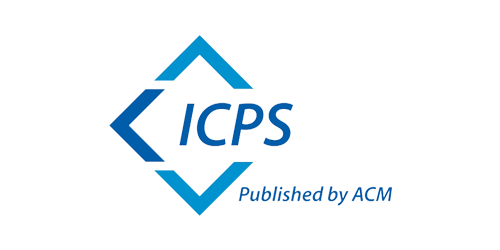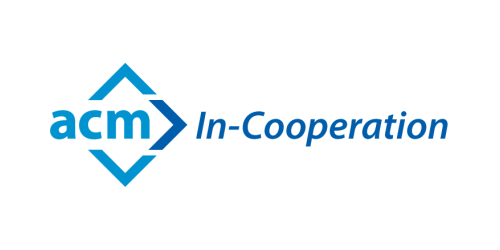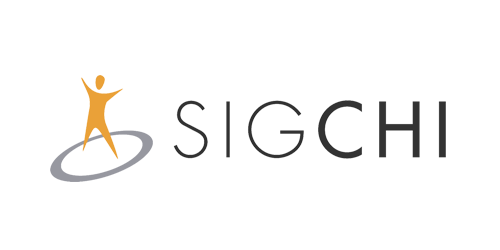Submission Instructions
Regular paper, music, demo and workshop contributions must be submitted via the EasyChair Audio Mostly 2017 submission portal. Please read carefully the instructions related to your contribution below before submitting.
Registration
At least one author will need to be registered and attend the conference for publication and presentation of an accepted contribution. Conference registration will be made available on the Audio Mostly website in due course.
General Instructions for Camera-ready Papers
The instructions below detail the procedure to prepare and submit the camera-ready (final) versions of papers which have been accepted for inclusion in the conference proceedings published by the ACM as part of the International Conference Proceedings Series. These instructions apply to regular, demo and workshop track papers.
- The submission deadline for camera-ready papers is provided in the the Important Dates section of the website.
- Make sure that you are using the correct ACM template for your paper by checking the General Instructions for Paper Preparation which you can find below on this page.
- Please improve your paper taking into account the scientific and editorial corrections/suggestions you have received from reviewers.
- Set up the ACM template in camera-ready mode (as opposed to review mode which generates line numbers, or author version mode). For the SIG CHI Proceedings LaTeX template (regular papers), change \documentclass[sigchi, review]{acmart} to \documentclass[sigchi]{acmart}. For the SIG CHI Extended Abstracts LaTeX template (demo and workshop papers), use \documentclass[sigchi-a]{acmart}.
- Please adhere to the in-text citation style and reference format guidelines provided by the ACM. If you do not, your paper will be returned to you for proper formatting.
- Please import the required indexing concepts for your article from the ACM Computing Classification System (CCS). You can use the following web-based indexing support tool which generates the necessary TeX/XML code once you have selected your terms to insert in your LaTeX/Word templates.
- The ACM will send accepted authors a copyright form and complete instructions.A weekly reminder will be sent to authors with outstanding forms. After completing the rights management form, the ACM will email authors a copy of the form and the correct rights management and bibliographic information text to add to their paper (incl. ISBN, DOI). As rights management emails are sent from an automated system, there is a chance that emails sent will wind up in SPAM folders. Please make sure that you set email SPAM settings to allow emails from “rightsreview@acm.org”.
- For demo/workshop papers using the SIG CHI Extended Abstracts format, please make sure that you are using the sidebar appropriately. The sidebar can be handy to include e.g. some of your figures and tables. Large figures may appear better using the \begin{figure*}…\end{figure*} environment, which renders the figures using the full width of the page.
- For regular papers using the SIG CHI Proceedings template, the use of the “teaser” figure on the first page is optional (\begin{teaserfigure}…\end{teaserfigure} in LaTeX template). The teaser figure should be used only if the authors judge that it adds value to the paper.
- Camera-ready submissions have to be made using the EasyChair Audio Mostly 2017 submission portal following the instructions below:
- Please update your submission information if necessary (e.g. abstract).
- Select “Add or update files” to submit your camera-ready paper and additional files as described below.
- Camera-ready paper (mandatory). Your camera-ready paper must be in the PDF format. You must include the correct ACM rights management and bibliographic information. As described above, these information will be provided by the ACM after approval of your rights management form. There is no specific file size restriction for camera-ready paper PDFs. Please do not downsample images within your PDF. It would be most helpful if you could optimise your camera-ready PDF file for fast web viewing before submitting it (ACM Digital Library requirement). If you can’t optimise your PDF file for fast web viewing, we will handle this process for you. The PDF fast web viewing process (also called PDF linearisation) does not reduce the quality but restructures a PDF document for page-at-a-time downloading from web servers. If this option is not available in your PDF tool (e.g. from the “Save As” function), you can use the command line program QPDF. On Mac, QPDF can be installed using the Homebrewpackage manager: once Homebrew has been installed, type “brew install qpdf” in the Terminal. To linearize (web-optimize) your PDF, use: qpdf – – linearize .
- Camera-ready paper source files (mandatory). In addition to you camera-ready paper PDF, please upload a ZIP archive file containing all the source files (LaTeX or Word document, bibliography file, etc.) and figures for your camera-ready paper. Article source files are required for the ACM Digital Library processing (as ACM transitions to provide responsive HTML5 output in the Digital Library).
- Camera-ready paper image representation (optional). Authors are also invited to submit an image representation of their article for the ACM Digital Library. Please note that this is optional. An example of how such image is used in the ACM Digital Library can be seen here. The image must be selected from the article body and can be any of the following: art, graphic, table, figures, etc. Image files are to be as square as possible, 100×100 ppi and in JPG format. You must supply a caption with the image. The caption length should be no more than 512 characters. To submit your image representation, please upload a ZIP archive file including the image (JPG file) and its caption (TXT file).
General Instructions for Paper Preparation
Templates
All Audio Mostly 2017 papers should be submitted using the 2017 ACM Master Article Template specified below for your contribution. Authors should use the ACM Computing Classification System (CCS) to provide the proper indexing information in their papers (see instructions on the 2017 ACM Master Article Template page). All papers must be submitted in the PDF format.
If you use LaTeX, please note that you may have to update your TeX distribution (e.g. TeXLive, MikTeX) and the acmart package to be able to compile using the 2017 ACM Master Article LaTeX Templates.
Abstracts
The length of abstracts in papers (regular, demo or workshop position papers) should be 150-200 words.
Regular Papers (Oral/Poster Presentation)
Audio Mostly 2017 regular papers can be of the following nature:
- Original research papers, which report original research methods and results;
- Review papers, which typically summarise the current state-of-the-art on a topic;
- Position papers, which typically present an opinion about specific issues;
- Case study papers, which typically present practical situations in real-world contexts that can contribute to existing knowledge of the field.
We let authors choose the most appropriate length for their contribution amongst the two following formats:
- Short papers (4 pages in the ACM SIG CHI Proceedings double column format) should present a work-in-progress (LaTeX template: sample-sigchi.tex; Word template: ACM_SigChi.docx).
- Long papers (5-8 pages in the ACM SIG CHI Proceedings double column format) should present a substantial contribution to the field (LaTeX template: sample-sigchi.tex; Word template: ACM_SigChi.docx).
Upon paper submission, authors will have the possibility to give their preferences for oral or poster presentations. The final mode of presentation (oral/poster) will be based on the review process and program constraints, and will be communicated to the authors upon acceptance.
Regular papers will be subject to single blind peer-review by at least two reviewers and included in the conference proceedings.
We encourage authors of regular papers to also consider their work for the Demo track, wherever relevant (see Call for Demos and guidelines below).
Regular papers deadline
The deadline for regular papers is indicated in the Important Dates section of the website.
Special Session Papers
Authors of special session papers must follow the instructions given for regular papers (see above). You will have to indicate the special session your paper relates on the conference submission portal. Paper special sessions are described in the Paper special sessions section of the website.
Special session papers deadline
The deadline for Special session papers is indicated in the Important Dates section of the website.
Demo Papers
Demonstration (demo) papers must be up to 5 pages long in the single column SIG CHI Extended Abstracts Format (LaTeX template: sample-sigchi-a.tex; Word template: SigChi-a.docx). We encourage authors of demonstrations to also submit a regular paper (see Call for Papers and guidelines above).
Demo papers should clearly pinpoint the novelty and characteristics of the project, even for readers who are not able to attend the demonstration at the conference. The papers should include:
- A description of the system and the problem it addresses. Where relevant, please discuss the broader context and research questions the work promotes reflection on;
- A description of the user or the audience the work intends to target;
- A description of the relevance of the work to the sound/music interaction design community, emphasising its novelty, uniqueness, and rationale.
Requirements for the demonstration must also be submitted as supplementary material in the PDF format. The requirements must indicate:
- Demo title and author information;
- Technical set-up;
- Space requirements;
- Any other information that will help us organise the demo exhibits.
The supplementary demo PDF material is for the purpose of review and planning only and will not be published. If you would like to provide audio and/or videos that can help us understand the scope of your demo, please include links to them in your supplementary demo PDF material and/or demo paper.
We will be able to provide basic equipment (e.g. tables, chairs, power sockets, WiFi connection) and we will try to meet any additional requests, subject to equipment and space availability. However, authors are expected to provide for their own specific material (e.g. loudspeakers, screens, projectors, sound boards). Also, coherently with the number and type of demos as well as the final configuration of the space, please note that we might need to adapt your proposed set-up to meet the restrictions imposed by the space and the circumstances. For instance, we might need to reduce the space available for your demo and to require the use of headphones.
Selection of demos will be curated by the Demonstration and Program Chairs. Authors of demos will have to specify upon submission whether they wish to have their paper considered for inclusion in the main conference proceedings. Demo papers to be considered for inclusion in the main proceedings will be subjected to peer-review. It will be possible to present an accepted demonstration without having the paper peer-reviewed but the paper will not be part of the conference main proceedings. By leaving the peer-review process optional, we aim to accommodate the needs of different types of authors (e.g. academics, practitioners, industrials).
Demonstration contributions deadline
The deadline for Demo papers and requirements is indicated in the Important Dates section of the website.
Workshop Proposals and Position Papers
Workshop proposal (compulsory)
Hands-on/interactive and regular workshop proposals for Audio Mostly should include the information below in a single PDF document. The document must be up to 6 pages long in the single column SIG CHI Extended Abstracts Format (LaTeX template: sample-sigchi-a.tex; Word template: SigChi-a.docx).
- Title
- Workshop organiser contact details (names, affiliation and emails)
- Short presentation of organisers’ backgrounds
- Discussion on the rationale for the workshop, the topics addressed and the goals
- Discussion on the relevance and significance of the workshop to the conference and its theme “Augmented and Participatory Sound/Music Experiences”
- A clear presentation of the workshop structure including the activities, timing and resources
- If relevant, a list of planned invited speakers with their background
- If workshop had previous editions, a brief history of the workshop
- When relevant, photos/images that help understand proposed workshop activities
- Desired duration (from 1h30 to a full day)
- Desired number of participants (a range is fine)
- Availability: 23-25 August (Y/N), 26 August (Y/N), preference (23-25 August or 26 August)
- A list of space and technical requirements
- Brief statement of plans for recruiting and community-building (e.g. through a web page or other type of communication in collaboration with Audio Mostly)
- Plans to share the outcomes of the workshop (e.g. journal paper, website, blog, videos, etc.)
A list of any relevant references - For regular workshops soliciting paper submission (managed by workshop organisers), the proposal should also include information about the workshop call for papers (see below), at the end of the proposal. Proposals for workshops that don’t require paper submissions don’t need to provide this information.
– A 250-word draft Call for Participation to be posted on the Audio Mostly website to recruit participants for the workshop upon acceptance
– Contact details of the workshop organisers who should be experts in the related fields
– Indications of format and length of papers (we recommend to use the same templates as for other Audio Mostly contributions)
– A description of the paper selection process
– A list of potential Workshop Program Committee members and their affiliations
– Important dates
– Estimated paper submission volume
– Indication if a journal special issue arrangement for the published workshop papers has been made
Audio Mostly requires that at least one author of each accepted workshop papers must be registered to the conference and attend the workshop.
Position paper accompanying workshop proposal (optional)
To complement workshop proposals, we strongly encourage workshop organisers to submit a position paper discussing topics addressed by the workshop. Contrary to workshop proposals, position papers will be peer-reviewed for inclusion in the conference proceedings. This is optional and must be provided as supplementary material, not in lieu of the workshop proposal which contains logistics information (see instructions above). There can be some overlap in content between a workshop proposal and a workshop position paper, but workshop position papers should not report aspects related to structure and logistics. Rather they should discuss the research topics and issues underlying the proposed workshop.
Position papers accompanying workshop proposals must be up to 5 pages long in the single column SIG CHI Extended Abstracts Format (LaTeX template: sample-sigchi-a.tex; Word template: SigChi-a.docx).
Position papers accompanying workshop proposals will be peer-reviewed. The outcome of the review process won’t affect the selection of workshops (a workshop can be accepted but the associated position paper rejected).
Workshop selection criteria
All workshop proposal submissions will be curated by the Audio Mostly Workshop and Program Chairs. The selection of workshop will be based on the workshop proposal (not the optional position paper) using the following criteria:
- The potential for the topic of the workshop to generate stimulating discussions and activities, as well as useful outcomes.
- The organisers’ ability to demonstrate in the proposal a well-organised process and plan for the workshop that fosters interactivity.
- The overall balance of topics in the Workshop program and relevance to the conference and its theme.
- The suitability of the workshop given logistic and program constraints
Workshop publication
Accepted workshop proposals will not be part of the Audio Mostly main proceedings. Accepted position papers accompanying workshop proposals will be part of the Audio Mostly main proceedings.
For workshops soliciting papers, the paper review process must be handled by the workshop organisers. The use of the Audio Mostly 2017 conference management system can be discussed with the Audio Mostly chairs upon acceptance. Papers submitted to workshops will not be part of the Audio Mostly main proceedings.
Workshop publicising
Both Audio Mostly and the workshop organisers will be responsible for publicising accepted workshop and for soliciting potential participants. Upon acceptance, workshop organisers will be required to create and maintain a web page with workshop specific information and a link to the Audio Mostly website. Audio Mostly will place a link to the workshop’s web page on its website. Workshop organisers may solicit participants for their workshop through an Audio Mostly Workshop Call for Participation (e.g. if the workshop solicit papers).
Workshop contributions deadline
The deadline for Workshop contributions is indicated in the Important Dates section of the website.
Music Contributions
Please submit a PDF supporting document for the music work via the conference submission portal. This can be up to 2 A4 sides, and should contain the following information where applicable:
- Author, composer and performer names and contact details
- Title of the work
- Statement of the relevance of the work to the conference theme and/or topics
- Program notes
- Technical requirements (audio and visual)
- Required stage layout
- Duration
- Instrumentation and number of performers
The document should also include a URL link to an archive file (zip or tar) containing the audio file(s) of the work. Please ensure this is in the highest possible quality audio format, preferably 44.1kHz, 16bit wav.
Music contributions deadline
The deadline for Music contributions is indicated in the Important Dates section of the website.
Contact
For more information or questions, please contact the organising committee at:









